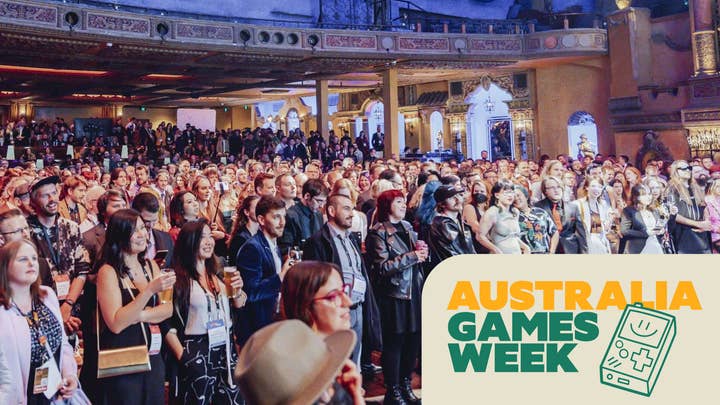The Australian games industry's journey back to a "complete healthy ecosystem"
Australian devs and trade bodies on how local games firms are tackling the challenges in funding, recruitment and more
Melbourne International Games Week 2023 felt like a triumphant return to form for physical events in Australia, marking a record year for the week-long celebration of all things gaming.
There were over 58 events held during this ninth edition (versus 33 last year), plus record attendance for PAX Australia and conference Games Connect Asia Pacific, which both run alongside MIGW at the beginning of October.
"It's lovely to welcome back the regulars, and it's wonderful to see new [faces], and a lot of imaginative thinking from organisations this year," says Fran Kerlin, senior manager for digital games and fashion at MIGW organiser Creative Victoria.
Following the event's successful return in 2022, AU$2 million was allocated to the expansion of MIGW for 2023 and 2024, as part of a AU$5.25 million funding boost for the games industry in the state of Victoria. And the effects of this boost could be felt this year.
"It allows us to look at more events, it allows us to work with partners to amplify those events," Kerlin says about the funding. "[MIGW] became like the house that Jack built; things were bolted on and bolted on and [we've] expanded to arguably make it the premier games event in South East Asia."
MIGW held the very first Australian international market representing the games sector this year, Play Now, put together by funding body VicScreen and connecting 39 developers with over 60 publishers and platform holders including Sony, Devolver, and more.
"It was really important to ensure that this was a national event and that we could project this market to the world," VicScreen CEO Caroline Pitcher tells us.
Lise Leitner, VicScreen's coordinator of games and digital media, adds: "We have devs from interstate come down to Games Week every year but I think the access to publishers is getting difficult because we're so far away from the rest of the world. So having that one central place, to pitch here, before they go to a GDC or before they go to a Gamescom, is [very valuable]."
The Australian games industry has been on an impressive growth trajectory over the past few years, with over 405 companies employing over 2,100 full time staff (most of them around Melbourne, Sydney, Brisbane, and Adelaide) and generating AU$284 million in revenue last year – a 26% increase over the previous year and a 148% increase over 2016. You can read more figures about the Australian industry, market, and audience on this page.
Games trade body IGEA CEO Ron Curry says the Australian industry is at a very interesting place at the moment.
"Over the last ten years, there was a real absence of government funding for the industry," he explains. "And then, over the last few years, the Commonwealth government has kind of reactivated and started to talk about the Digital Games Tax Offset. In line with that, the states and territories started to think: 'Well, OK, if the Commonwealth's going to do that, how do we sort of dovetail into it?'"
The DGTO was finally approved earlier this year, after decades of lobbying from the Australian industry. Meanwhile, the state of Victoria has been leading the way for games funding, but the other states are most definitely catching up, with a GCAP panel this year hosting screen agencies from across the country discussing how they support games.
"The games industry has an interesting story in Victoria," Kerlin says, pointing to the fact that 38% of the Australian games workforce is located in that state. "It has been supported as an industry for nigh on 30 years and irrespective of whether we've had a Liberal government or a Labor government. The support has been unstinting and unbroken, which I think speaks to the reason why Victoria is the market leader."

Pitcher adds: "We're a country of 26 million people, so we don't have that kind of economy that has volume like the United States has volume. And we also don't have proximity – geographic proximity is also a challenge for us. So it requires us to be smart, to collaborate to create mass and volume.
"But if [Victoria] has been supporting it for 30 years and other states have been supporting it for less than that, it's still in its infancy in a way. If you think about film and television, which is well over 100 years old, this is a fresher, new generation, a different culture. We had a question at the [GCAP] panel of, why do the TV and film agencies have games? Shouldn't games have their own screen agencies? We're about ideas and creativity on screens, no matter if it's a TikTok or an interactive Netflix show, through to just playing a game on your phone. We want to embrace ideas and really encourage and nurture creativity and get those projects made, to share that with the world and to advance our Australian culture, because we certainly don't have ourselves in numbers but we have it in passion!"
It's worth reminding here that most of the Australian industry was wiped out after the global financial crisis of 2008 and it had to rebuild itself from the ground up. And at the moment, it doesn't seem to be experiencing the same contraction other regional industries are going through – maybe because it's not regained that critical mass yet.
"There is a strange kind of insulation that we have here, just because of how the industry is structured," explains Trent Kusters, founder and director of League of Geeks, and recipient of this year's Adam Lancman Award at the Australian Game Developer Awards, for his work supporting and championing the Australian industry.
"We do have big names – like Keywords – but one of the things you'll probably notice with a lot of these layoffs is it's not folks in the service industry. We don't have huge Embracer studios that are trying to get flagship titles off the ground and everything like that. There are some layoffs happening silently in a number of places, in some of the bigger studios as well, but I think they're being handled well and it's not like we're immune."
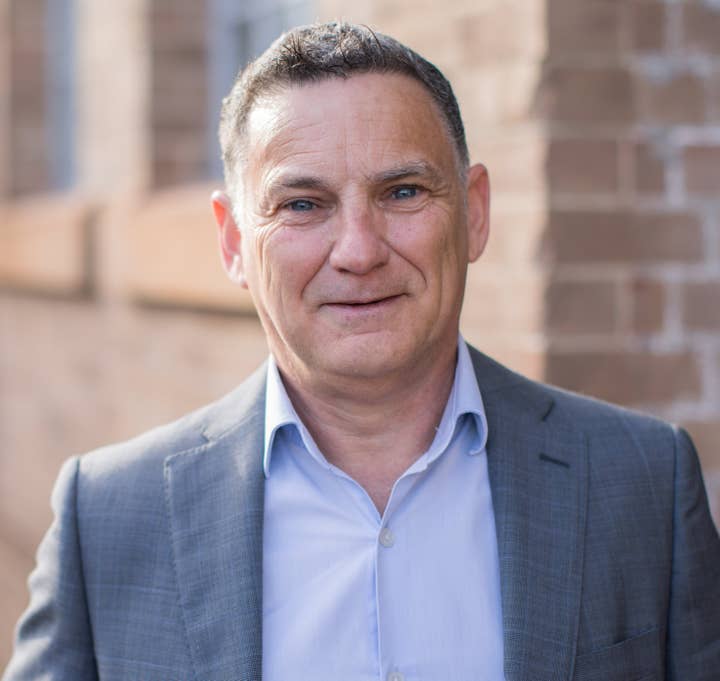
He continues: "In Australia, our dollar is doing very poorly against the US dollar, which is good news for us in the industry here, whether you're selling games in USD or whether you're being paid in USD. I think that's helped shelter us a bit. We also have the subsidies and there's the timing of the DGTO [that is insulating us as well]."
Curry adds that he's not sure whether the Australian games industry is on a high, but rather that it is still growing.
"It goes back to that absence of funding. Up until the DGTO, up until a few months ago, we were the only developed nation without a fund. There was an absence of huge studios. You don't see a huge Ubisoft studio here, you don't see a large Take-Two studio because, up until recently, there was much more incentive to open somewhere else. I think it's those size businesses that expand quickly and contract quickly. Maybe in five years time, when our industry is fully burgeoning, where I would hope it's going to be, then maybe we'll be more susceptible to those ebbs and flows, just like any creative industry."
Curry adds that he'd love for Australia to attract big companies again, and have "a complete healthy ecosystem."
"I think the industry really benefits from the accelerator effect of a AAA studio. You come out of college or uni, you get a job in a AAA and really learn your craft well. You're exposed not just to your craft but to other crafts. You do your time, then decide to do your own thing, go become an indie, and you do that with experience."

However, he warns of the potential negative effects of it, saying that having AAA studios enter the Australian industry wouldn't "happen without some pain."
"If Ubisoft says it is going to have 200 people here tomorrow, that's going to hurt the industry because they're going to suck people up from somewhere. They pay more. There will always be a pain point while we find equilibrium. Unfortunately, everything hurts while you find your balance."
While the Australian industry is on an upwards trajectory, with a wealth of funding initiatives and tax reliefs now available both at state levels and nationwide, that's not to say everything is picture perfect, and it might not have everything it needs to effectively take it to the next level.
Kerlin says that funding is one challenge that Creative Victoria still "continually hears about from developers."
League of Geeks' Kusters says that Australia had "a big laundry list of things" it was looking for, the tax offset being at the top.
"Now we've got the DGTO, Screen Australia announced a whole bunch of new funding, Screen Queensland as well, VicScreen ahead of Melbourne International Games Week announced a tax rebate for 15% on top of the DGTO… And I was just talking to an indie developer and I was like, 'How are things going?' They said, 'Great, this is the most subsidised video game ever made,'" he laughs.
But two issues are still in the process of being solved: funding for the very small teams, and funding for the very big teams in need of senior talent.
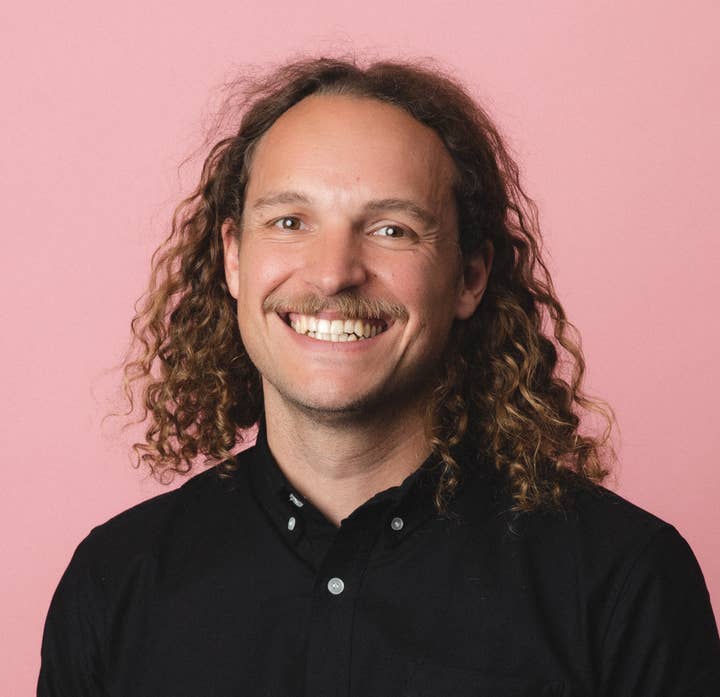
"What we need next is we're going to start to see studios of our size either scale up into that next tier of development and I think really that, while the DGTO does serve that and tax offsets are great for us, there is probably some more bespoke, tailored solutions for folks of our size and scale, who can internally take this level of talent that we're saying isn't really there and invest in [it]," Kusters continues.
"Screen Australia's skills development program that they just announced is going to be great for this, it's sort of the kindling that should help here, because that will enable us to train senior talent. So that's huge. But there's no point in training leaders if we can't grow to create leadership opportunities within our studio. It's definitely a marathon, not a sprint for us. We have a very, very strong funding scene here, but there's always more that can be done."
On the other side of the spectrum, co-founder of Unpacking developer Witch Beam, Sanatana Mishra, expresses concerns about tax breaks in Australia being largely oriented towards large companies, and argues that more could be done for small companies and R&D funding.
"Most of the tax breaks relate to project costs exceeding half a million dollars or $1 million per year, which is usually headcount-related," he says. "Then on top of that, it has exclusions if you're an owner. So it's really geared towards large companies and by being geared towards that, it means – in my opinion, and this might be controversial – it's exclusively geared towards large multinational companies. Because we don't have any large Australian companies, or we had one or two and they've been having a lot of trouble.
"Really a lot of this stuff is geared towards bringing in Activision with Sledgehammer, or Keywords [that] is all over Australia now. Wicked Witch was bought by Keywords. So you've got these huge companies and they really want to bring more of them into Australia and attract them, kind of like Canada did a long time ago. I don't think that's great. I think that the best thing for Australian games is to focus on government support that enables Australian-owned and operated businesses that employ Australians, that are not reliant on international markets."
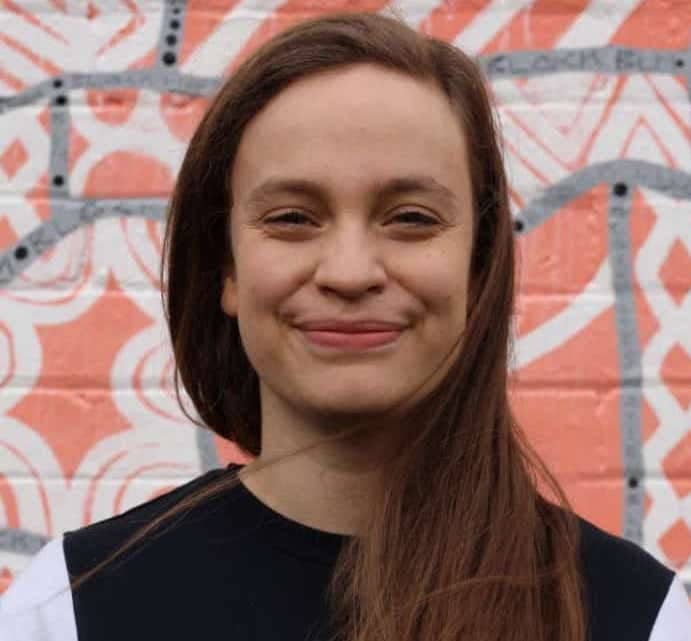
Our interview with Mishra took place just before Screen Australia announced the Emerging Gamemakers Fund and the Games Production Fund, which could partly address some of the concerns around funding R&D and small creators.
But funding isn't the only challenge. High-level highly skilled talent is also mentioned by Kerlin as an issue in the country.
"There's a global squeeze to get that top tier talent," she says, also mentioning issues with a skills gap at a graduate level. "We're halfway around the world from epicentres like Northern America and Europe. So I think the challenges are to keep our very senior talent here. Our job is to make sure there are sufficient jobs available and a growing industry sector that can absorb expats while at the same time facilitating local growth through experience, out of education and into the industry, making sure there are programmes available."
Kusters adds there are a number of senior talented people in Australia, but they're already at studios so there's a need for more so companies can scale up. The senior talent pool is not only smaller but more difficult to retain, too. And once again, the geographical location of Australia isn't helping.
Mishra says: "Physical location is a huge challenge. I would say that's one of our biggest challenges. Talent as well. A lot of people I know are constantly fighting to find the right person. When in other countries you have 100 people who can get a job, maybe in Australia there's like ten people who can do that. It's a difficult thing.
"But really the biggest one for me is our physical location. It makes it prohibitively expensive for a lot of people to market themselves to attend things. It's also why I think you've seen the steady growth and boom in Australia as we moved to everything digital. It gives us a huge advantage. I really don't want to talk about COVID in this sense because it's a horrible thing that has happened and killed millions of people, but if you look at the pure effect, it made making games in Australia significantly easier because everything moved online. It made a big difference to people here being able to do a Steam Next Fest. Do you know how hard it was to get your game in front of that many people as an Australian before? It was not easy."

Looking ahead, Kusters believes Australia will soon attract the attention of major investors.
"What we have now is an industry where we have major players in town, we have EA, we have Activision, we have Ubisoft in Sydney, we have a bunch of folks who have larger studios – obviously all the Keywords ones. But there's only so many Call of Duties that someone can make. If I were a betting man, [I'd say] that we'll see a combination of folks leaving those studios, who are the senior talent, to create their own studios here, especially considering all of the funding and support that they'll get. Folks typically fund studios that are founder-led, have experience with these AAA games [and so on], so folks like NetEase and Tencent, and others that do that kind of seed investment – they've got their eyes on Australia. So I think we'll see a bit of that.
"And then I think we will also see opportunities for folks to come from overseas to do that here in Australia. The problem is they'll be able to start it on the subsidies that we have now, but if they want to then actually build AAA studios here, we just need to ensure that the tax offsets aren't the only thing acting alone in getting them from that medium to large size. And I mean, we're talking five to ten years in the future."
Looking at the games alone, almost every year brings its Australian hit – whether it's Hollow Knight, Untitled Goose Game, Unpacking, or Cult of the Lamb.
"I've been in games for about 25 years, here and in the UK, and Victoria and Australia are so distinctive," says Paul Callaghan, head of games and interactive at VicScreen. "It's been really interesting watching [that distinctiveness] emerge over time, and certainly over the last five to six years. It's a real mix – we have big studios here now, we have a Call of Duty studio [Sledgehammer], we've got PlaySide, we've got these large [studios], hundreds of people working on projects.
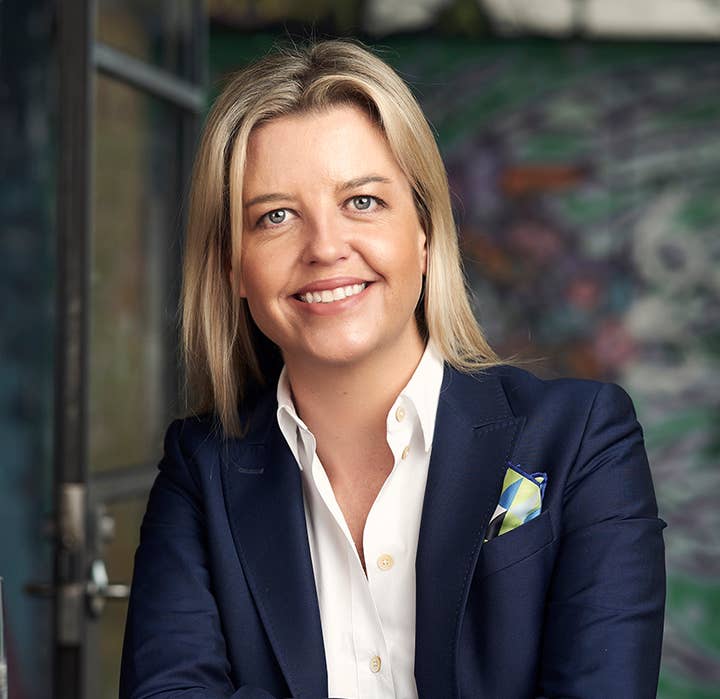
"And then we've got people like Grace Bruxner who made Frog Detective, Ian MacLarty and Kalonica Quigley working on Mars First Logistics, so these kinds of individual, really creative artist game makers. And then everything in between, so Summerfall Studios with Stray Gods, League of Geeks with their two new projects, the Beethoven & Dinosaur team who made Artful Escape. So it's this incredible mix of different types of work and different types of ideas.
"You know, we're far away, so that creates a really distinct creative space. But I think also recovering from the global financial crisis, people built the business that they wanted to build and make the projects that they want to make, and realised that creativity had to be at the heart of it. That's what really drives these studios. And then that collaboration, that collegialness, that desire to go around your friends to see the cool things that they're making, is really distinctive. This friendly competition is really unique, in Victoria and across Australia."
It's a sentiment that's echoed by Curry, who reflects back on the evening of the AGDAs.
"Every single game that got put up got a cheer. It's never a case of it's this title versus this title. Every title is respected and loved. I think that's part of the DNA of Australian video game culture. It's collaborative. If you're making a game and you don't know how to do something, if you're stuck, your competitor will help you. If you make a lot of money on a great game, mostly you'll see those people then investing in other games. It's just the culture of this support nurturing, experimenting, some bravery, maybe a little bit of 'What the hell? I'm just gonna do it, what does it matter?' sort of attitude, which is cultural as well. It's a sprinkling of all that which makes the magic dust."
Sign up for the GI Daily here to get the biggest news straight to your inbox
Melbourne International Games Week provided GamesIndustry.biz with travel and accommodation for this year's event. PAX Australia is organised by GamesIndustry.biz parent Reed Exhibitions.
